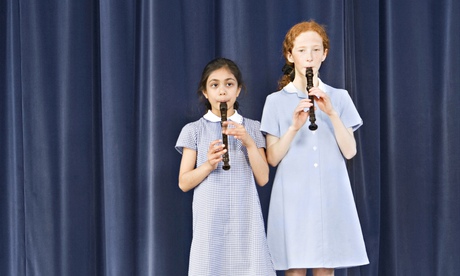
When I was at school, I got into trouble quite often. Nothing major; I wasn't one for truancy, violence or jacking up in the classroom. It was just cheek, messing about, that sort of thing.
It felt like terrible injustice when I was sent out of the room or given a detention but, as a grown-up, my sympathy is almost entirely with the teachers. How dispiriting, if you're attempting to share knowledge with inquiring young minds, to find your charges refusing to engage with quadratic equations or oxbow lakes because they're busy passing round a dictionary with a rude word circled in it. (Or, if they're trickier pupils than I was, knifing each other.)
I'm convinced we go to school at the wrong time. I'd have been delighted, aged 12, to get out into the world and earn some money doing something menial. These days, I can think of nothing more delightful than gathering in a room to sit quietly all day and be shown experiments or taught a new language.
What I failed to grasp was that the teachers, being adults themselves, knew what a wonderful thing they were offering. They must have felt like a boyfriend of mine once did when he gave me six oysters as a Valentine's gift; I boiled one, swallowed it with water like an aspirin, and threw the rest away.
However, there was one injustice that still smarted until very recently: I was thrown out of recorder class for "not taking it seriously enough".
This seemed preposterously unfair. It was a roomful of nine-year-olds, all obliged to play London's Burning on the recorder. At the same time. Can you imagine what that sounded like? How could anyone take it seriously?
As recently as last week I would have said that the recorder is a ghastly instrument to give a child and you simply cannot expect them to keep a straight face while playing it.
But then I saw a report from the Associated Board of the Royal Schools of Music, which shows that pupils are giving up traditional instruments in favour of drum kits and pop. The electric guitar is now equal to the violin as a "learning instrument" and has overtaken the poor old flute.
I happened to read about this two days after seeing the last night of the Proms, where guest conductor Sakari Oramo (a rather fabulous fellow, with a British flag on the front of his waistcoat and a Finnish one on the back) made a rousing plea for children to learn classical music.
Lamenting the instinct to divert funds elsewhere in times of economic strife, Mr Oramo said: "Music is so many things. It is mathematics. It is history. It is culture. It is physical education." He said that music is "therapy for those who need it" and "an international language for the world".
And I felt terribly sad, suddenly, to reflect that people can discover the electric guitar or the drums at any age, due to their predominance in mass culture, but if you don't learn the violin in childhood then you never will. You could, but people don't – and what if your child has a world-class talent? Adulthood would be too late to discover it.
I know schools don't have money for everything, but I wish they could all have a couple of violins for kids to try; a couple of cellos, perhaps a bassoon. My primary school did not. What it had, God bless it, was a box of old recorders.
I've just gone on to YouTube and watched Vivaldi's Recorder Concerto in D. It's amazing! I had no idea that someone like Vivaldi bothered writing concertos for the recorder, which even fewer people will know if nobody's bothering to learn to play them. What a tragedy if those sounds were to be lost, never mind the violin concertos that are so much better known. For now, anyway.
So, I hope that people with more influence than me will also have read the Royal Schools of Music report in the light of Sakari Okamo's words and I'd like to say sorry to my old music teacher, Mr Mitchell. I should have taken him more seriously.
Monster munch
Speaking of philistinism, I know I'm not the only person who spent last week worrying about some decisions that could transform the future of a country.
I'm speaking, of course, about France. These people have had full independence since a yes campaign 200 years ago, but has anybody noticed what they're doing with it?
There is talk in their national media of selling the Mona Lisa to pay off the national debt. Meanwhile, Alain Ducasse and a delegation of French chefs are lobbying for the right to cook ortolan, a songbird so rare that it's illegal to kill it.
They don't just want to kill it. They want to force-fatten it with grain, then drown it in brandy. Let's be honest, that sounds delicious. But is that the direction of western civilisation? Sell off the art, then torture rare wildlife into extinction? I think we can safely say that protests about foie gras have not quite hit home.
"Oh, you don't like zee force-feeding of zee geese? Wert if it was nert geese but rare songbirds, and we don't jerst force-feed zem but DROWN ZEM AFTERWARDS? How you liking zat, you meemsy rosbifs weez your Dairylea and your spotted deeks?"
The way to eat ortolans is to cloak your entire head in a cloth, slurp up the rare creature and spit out its bones. As we commit to ongoing unity between the nations in this country, it might help to squint at those chaps across the water and reflect on quite how different they are.

